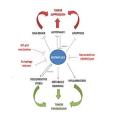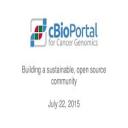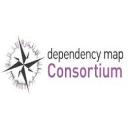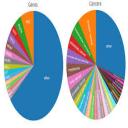COSMIC, the Catalogue Of Somatic Mutations In Cancer, is the world's largest and most comprehensive resource for exploring the impact of somatic mutations in human cancer.
...continue to readEstablished in 2000, International Cancer Research Partnership (ICRP) is a unique alliance of cancer organizations working together to enhance global collaboration and strategic coordination of research.
...continue to readA 'module map' showing conditional activity of microarray expression modules in cancer
...continue to readThe Mouse Tumor Biology (MTB) Database supports the use of the mouse as a model system of hereditary cancer providing online access to a variety of information on tumor models, genetic factors, tumor pathology, etc.
...continue to readReference for all scientist working on p53 or in cancer research in general.
...continue to read
Add to my favorites
Remove from my favorites
International Agency for Research on Cancer
Category: Cancer research
The International Agency for Research on Cancer (IARC) is the specialized cancer agency of the World Health Organization. The objective of IARC is to promote international collaboration in cancer research. The Agency is interdisciplinary, bringing together skills in epidemiology, laboratory sciences, and biostatistics to identify the causes of cancer so that preventive measures may be adopted and the burden of disease and associated suffering reduced. A significant feature of the Agency is its e
...continue to read
Add to my favorites
Remove from my favorites
Category: Cancer research, Other topics
Subcategories: Broad
The Connectivity Map uses computer algorithms and genome-wide expression data to explore the connection between diseases, genes, and drugs. Cmap is a collection of genome-wide transcriptional expression data from cultured human cells treated with bioactive small molecules and simple pattern-matching algorithms that together enable the discovery of functional connections between drugs, genes and diseases through the transitory feature of common gene-expression changes. The aim of theConnectivity
...continue to readThe cBio Cancer Genomics Portal provides visualization and analysis for working with data from TCGA and other data sets and provides download of large-scale cancer genomics data sets. You can query this user-friendly portals maintained by the Computational Biology Center at Memorial Sloan-Kettering Cancer Center by entering the name of one or more genes. The output is a list of cancer studies of different tumor types; click on a study, and then on View Cancer Study Details, to call up a graphicâ
...continue to read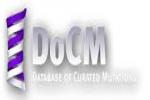
Add to my favorites
Remove from my favorites
a database of curated mutations in cancer
Category: Cancer research
DoCM is database of curated mutations in cancer, an open-source, openly licensed resource to enable the cancer research community to aggregate, store, and track biologically important cancer variants with provenance supported by the literature (see Ainscough BY et al., Nat Meth 13:806, 2016)
...continue to readThe Cancer Genome Atlas (TCGA) Data Portal provides a platform to retrieve information on somatic mutations, or other data types such as copy number, DNA methylation, and gene expression, for a number of tumor types. It contains clinical information, genomic characterization data, and high-throughput sequencing analysis of the tumor genomes.TCGA updates as soon as new data become available.
...continue to readThe UC Santa Cruz Xena (Cancer Genomics Browser) is a suite of web-based tools to visualize, integrate and analyze cancer genomics and its associated clinical data. It displays side-by-side heat maps of genomic data such as gene expression and copy number changes, and clinical data for a long list of cancer data sets, along with a feature that enables researchers to look for genomic variations that correlate with clinical outcomes.
...continue to readThe International Cancer Genome Consortium (ICGC) Data Portal allows researchers to access mutation and expression data for specific genes, or to scroll through data sets collected so far on 24 types of cancers by project teams in 9 countries. It represents a good starting point to check for known mutations and other aberrations in a gene of interest.
...continue to readTumorPortal, developed and maintained by the Broad Institute of Harvard and MIT, hosts a ‘pan-cancer’ data set from several tumor types. It provides visualization of computationally processed gene information. It shows which genes are mutated in many tumor samples and types.
...continue to readThe Cancer Genome Atlas (TCGA), a landmark cancer genomics program, molecularly characterized over 20,000 primary cancer and matched normal samples spanning 33 cancer types. This joint effort between NCI and the National Human Genome Research Institute began in 2006, bringing together researchers from diverse disciplines and multiple institutions.
...continue to readThe goal of the Dependency Map (DepMap) portal is to empower the research community to make discoveries related to cancer vulnerabilities by providing open access to key cancer dependencies analytical and visualization tools. It would systematically map cancer vulnerabilities by perturbing genes and proteins across many cancer types as well as across clinical stages and settings. The Cancer Dependency Map would collect different data and ask different questions from sequencing projects by lookin
...continue to readThe server from MSKCC predicts the functional impact (high, medium, low, or neutral) of amino-acid substitutions in proteins, such as mutations discovered in cancer or nonsynonymous polymorphisms. The functional impact is assessed based on evolutionary conservation of the affected amino acid in protein homologs. MutationAssessor looks at conservation across all the homologs of a protein and also it takes into account the conservation within just the closest homologs, which is called “specifici
...continue to readCancerMine resource is a literature-mined and routinely updated database of drivers, oncogenes and tumor suppressors in different types of cancer. This resource provides information on genes that are drivers (frequently harbor cancer-promoting mutations), oncogenes (cancer-promoting) and tumor suppressors (protective against cancer) in a large number of different cancers. Context is key as some genes (e.g. NOTCH1) are oncogenes in one cancer and tumor suppressive in another. All data has been te
...continue to readPage: 1





